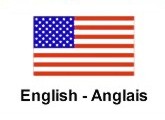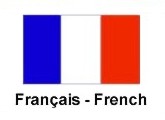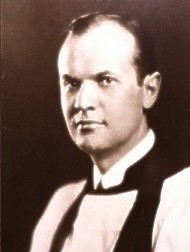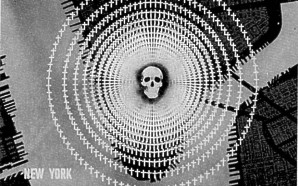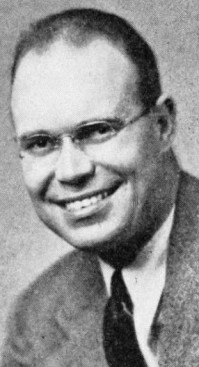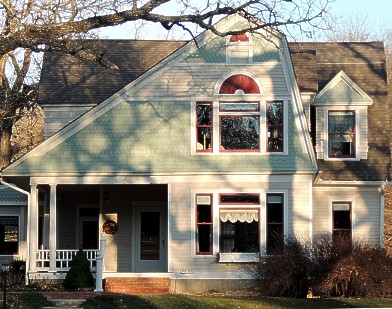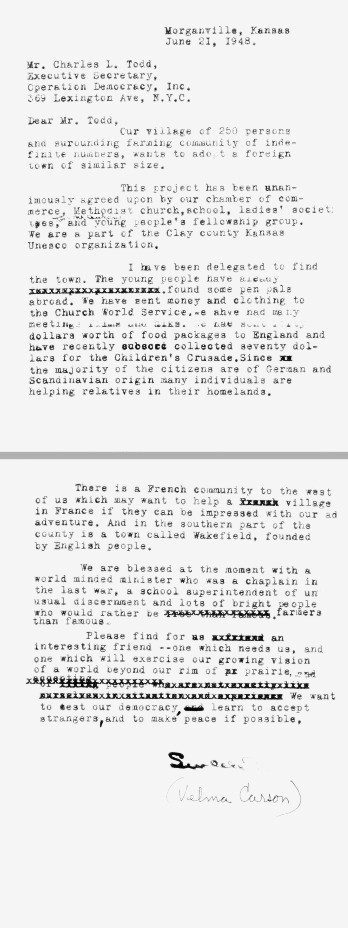A New Friend
The citizens of Morganville were ready to try something different. They wanted to help those countries struggling with war damage, but didn't feel their previous contributions to various charities had accomplished much. Minister and writer Elmore McKee came to Morganville in the fall of 1950 to gather material for a radio program he was producing. When he asked Carson about the villagers' state of mind in 1947, Carson said:
We'd tried Pen Pals, but the letters came back [stamped] "missing." We'd sent money and clothes to China, but never knew if they got there. We'd tried being religious, but at every meeting, we came to feel religion wasn't enough unless we did some specific, affirmative thing.
That discontent may have fostered minister Millikan's success in persuading Carson to attend the December 12 and 13, 1947 UNESCO meeting in Wichita, Kansas. Certainly the news coming from nearby Manhattan about the Kansas UNESCO organization would have pushed her in that direction. When McKee asked Carson how it began, she said:
I'm not sure anybody exactly knows. But we had a
minister here who kept us thinking about a whole lot more of the world than just Kansas. And there were people from
Kansas State [College] getting many of us excited about UNESCO.
I went to Wichita - to a UNESCO meeting. That was December 1947. It was exciting. Everybody was there: Catholics,
Protestants, Negroes, whites, farmers, college professors, housewives - all with the single idea of peace. I felt so
hopeful that when I passed a Gypsy girl standing before her encampment in an empty store, I grabbed her hand when
she reached for mine to tell my fortune and said, "No, I want to tell your fortune." I said to her, "You are coming
into a new day. You have been unlucky in love, but you're going to travel a new America and find many friends dark
and light and always remember - your fortune is the kindness in your heart." I crossed her palm with fifty cents
and tears came to her eyes and she grabbed my hand and squeezed it.
Clay County organized its own branch of UNESCO. The meetings were often held in the high school in Clay Center. But other sites were also utilized. Typically, there would be a speaker, a film and a discussion.
One film was "One World or None." It was based on the book of the same name created by the Federation of American
Scientists, and built on the ideas in Willkie's book. But his book had been written before the creation of atomic weapons.
"One World or None" suggested that the alternative to an international governing agency was not a return to the past of
conventional warfare, but to a conflict that could readily eliminate all human life.
Opening screen from "One World or None" movie
UNESCO Topics
-
-
-
-
-
-
-
December 12-13, 1947, Wichita - UNESCO goals
January 30, 1948, Clay Center - "Affiliated Towns"
February 1948 - UNESCO film "One World or None"
April 1948 - Carson speaks about UNESCO goals
April 1948, Morganville - Speaker Robert A. Walker, Institute of
Citizenship director at KSC
May 1948 - film "The Road We Walk"
May 1948 - "Crusade for Children" discussed
Robert A. Walker
In regard to the January 30 meeting in Clay Center, Carson said to McKee:
In the winter of 1948, we had a similar meeting [like the one in Wichita] at Clay Center. Several of us went over. It was then we heard the talk about "town affiliation" and someone told of how Worthington, Minnesota, broke precedent, offended some, [and] adopted Crailsheim, Germany. That floored us. Why couldn't we have a town, too?
Later in the spring, a meeting of folks from Morganville took place on
Carson's porch. While the date is unknown, it was during spring plowing, so it was probably in mid-April to early May.
It was at that meeting that it was decided to look into adopting a town.
Then, on June 21, the step was taken that would change everything. Carson wrote to Charles Todd asking that he
find for them an "interesting friend."
The Carson Morganville house was sold
and moved in the 1980s to a farm northeast
of Olsburg, Kansas. The house in 2013.
Morganville, Kansas
June 21, 1948
Mr. Charles L. Todd
Executive Secretary
Operation Democracy, Inc.
369 Lexington Ave., N.Y.C.
Dear Mr. Todd,
Our village of 250 persons and surrounding farming community of indefinite numbers, wants to adopt a foreign town
of similar size.
This project has been unanimously agreed upon by our chamber of commerce, Methodist church, school, ladies'
society, Farm Bureau, and young people's fellowship group. We are a part of the Clay County Kansas UNESCO
organization.
I have been delegated to find the town. The young people have already found some pen pals abroad. We have sent
money and clothing to the Church World Service. We have had many meetings, films and talks. We have sent fifty
dollars worth of food packages to England and have recently collected seventy dollars for the Children's Crusade.
Since the majority of the citizens are of German and Scandinavian origin, many individuals are helping relatives
in their homelands.
There is a French community to the west of us which may want to help a village in France if they can be impressed
with our adventure. And in the southern part of the county is a town called Wakefield, founded by English
people.
We are blessed at the moment with a world-minded minister who was a chaplain in the last war, a school
superintendent of unusual discernment and lots of bright people who would rather be farmers than famous.
Please find for us an interesting friend – one which needs us, and one which will exercise our growing vision of
a world beyond our rim of prairie. We want to test our democracy, learn to accept strangers, and to make peace if
possible.
Sincerely,
Velma Carson
Draft of Carson letter to Todd
